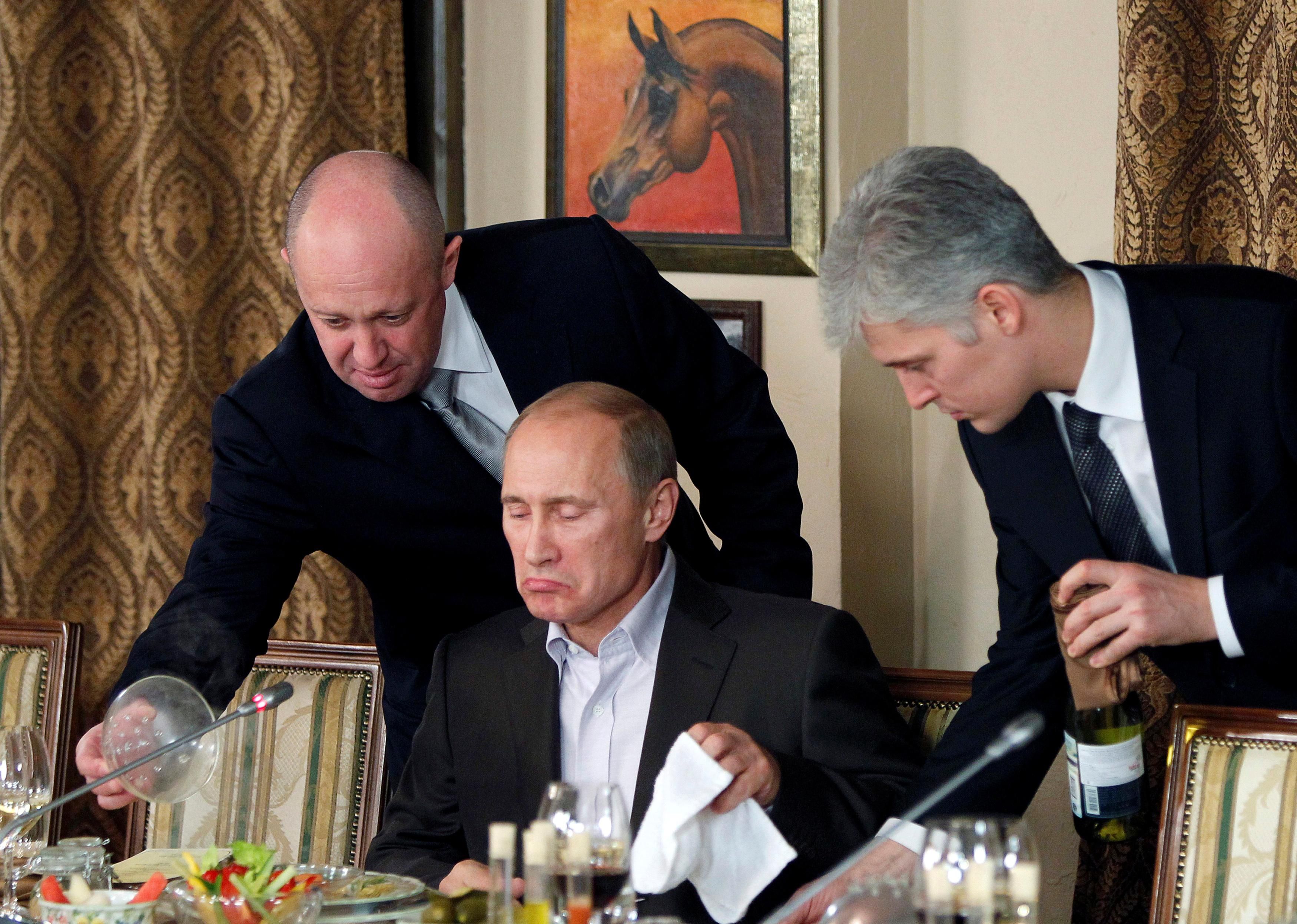Yevgeny Prigozhin, founder of the Wagner Group mercenary force and a longtime ally to Vladimir Putin, has become an increasingly prominent figure in the war in Ukraine — and perhaps in Russia’s future. His private army, media platform, and Putin’s deepening dependence on his fighters to bolster Russia’s lousy military performance make him a character worth a close look.
Who is Yevgeny Prigozhin?
Little is known about Prigozhin before the nine years he spent in prison as a young adult following his conviction on robbery and fraud charges. After his release in the dying days of the Soviet Union, he set up a highly profitable hot dog stand in St. Petersburg, and from there he built a restaurant business that helped feed Russian soldiers and later catered events for Russia’s richest and most powerful. He also caught the attention of Vladimir Putin.
In 2014, Prigozhin’s entrepreneurial energies led him toward a different kind of start-up. He launched a private military contracting organization called the Wagner Group — named for Adolf Hitler’s favorite composer — with widely suspected links to the Russian government. The timing is not coincidental; that’s the year Putin ordered Russian soldiers to seize Crimea from Ukraine, a moment when muscle for hire was in high demand.
He also claims credit for building a troll farm designed to manipulate the 2016 US elections. In response, the FBI added him to its most wanted list in 2018. Undeterred, Prigozhin has bragged publicly, and in colorful terms, that he’s helped Russia interfere in this week’s midterms.
What is the Wagner Group?
It’s a private army of thousands of trained mercenaries, owned by Prigozhin, which is believed to act on behalf of the Russian state in conflict zones like Syria, Libya, West Africa, and Latin America. Wagner allows the Russian state to participate in unacknowledged wars on faraway battlefields and has made Prigozhin both useful to Putin and fabulously wealthy.
For years, Prigozhin denied involvement with Wagner. Then, earlier this year, a video surfaced in which he’s seen recruiting prison inmates to fight in Ukraine. His carefully maintained distance from Wagner no longer useful or credible, Prigozhin has now acknowledged his leadership of this private army and appears to be using it to boost his public profile within Russia.
What makes Prigozhin matter at this moment?
It’s no secret that the Russian military’s performance in Ukraine has been awful. Poorly trained, badly equipped soldiers have failed to achieve Putin’s stated goal of decapitating Ukraine’s government and disarming its military. The Wagner Group has become particularly useful because its fighters are well-trained and willing to fight.
Prigozhin’s growing importance for Putin’s war effort is bringing him out of the shadows. Wagner has even opened a public headquarters in St. Petersburg. He’s been increasingly outspoken with Russian media in his criticism of the country’s military commanders, Russian Defense Minister Sergei Shoigu, in particular. It’s a brazen display of his political connections and the power they provide, given that criticism of the army is a serious crime in Russia.
The Institute for the Study of War, a think tank based in Washington, DC, has argued that Prigozhin is trying to build an “independent power base” within Russia. He’s striking an interesting balance in his public messaging at the moment with appeals to Russian unity and the country’s glorious history while also emphasizing his own independence from the Russian state. He’s careful to signal his fealty to Putin, but Prigozhin has embraced a larger public role as a can-do Russian patriot with an army that reports only to him.
Where will all this lead?
For now, Prigozhin’s reputation and the near-complete impunity with which he’s working to build a public profile as a kind of Russian nationalist folk hero remain tied to the fate of Putin and the war in Ukraine. If the fight continues to go badly, and if Putin’s own future comes into serious question, Prigozhin could be forced to test his ability to survive without protection at the highest level.
Only then will it become clear whether the criminal opportunist at the heart of Putin’s war can stand on his own.
